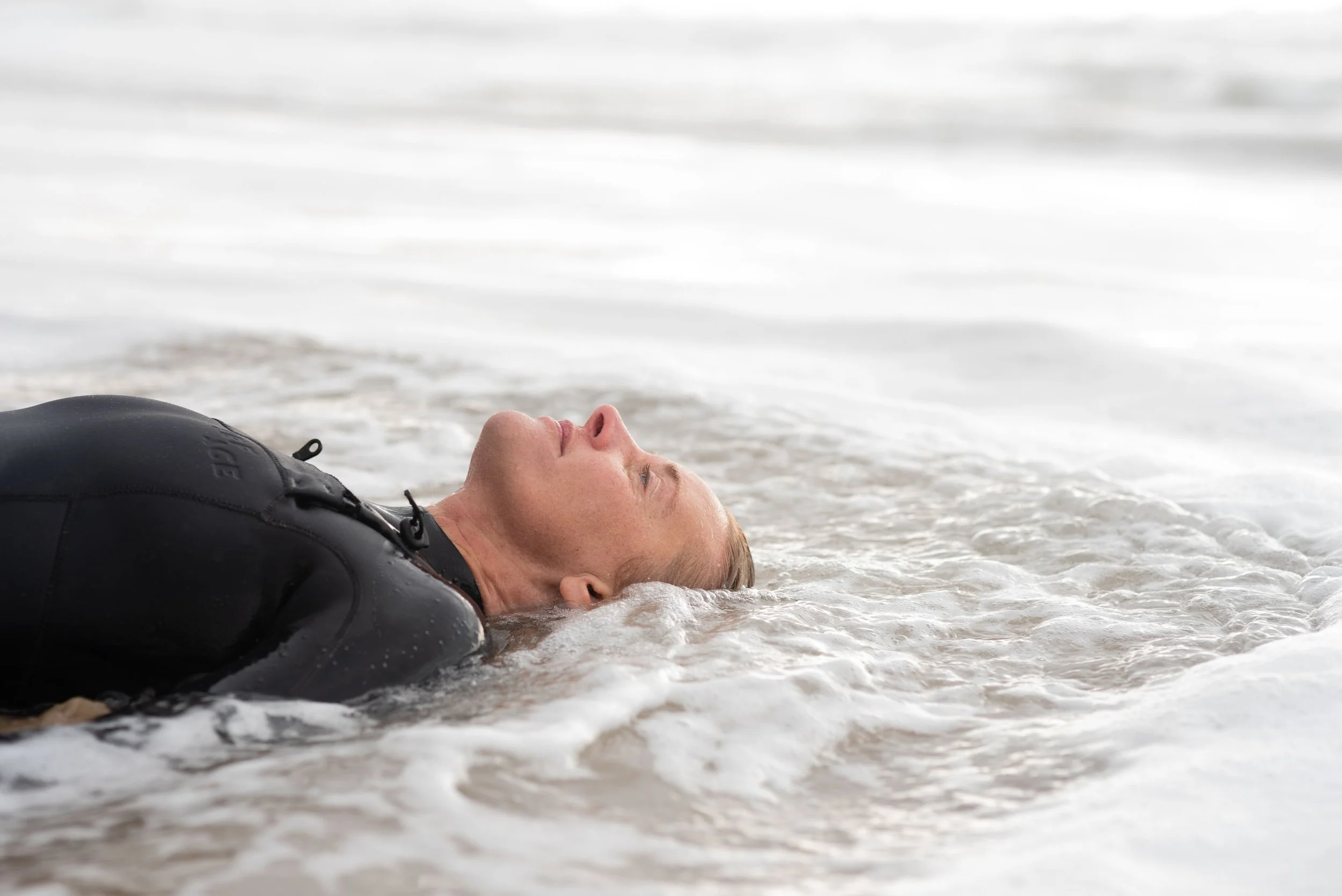My Story of Surfing and Ocean Literacy (by Nat)
I first came across the concept of ocean literacy in 2018—and it truly changed my life. It shaped my academic research, influenced my approach to surf coaching, and has since opened doors in my career in ways I never imagined.
At the time, I was studying for a Master’s in Sustainability at Anglia Ruskin University. It was a remote course with five in-person residencies in Cambridge and at the Eden Project (who were partners). I’d chosen Sustainability (instead of Marine Science) because I wanted to tackle the big-picture challenges we’re facing—climate change, plastic pollution, biodiversity loss—and explore potential solutions. I had also worked briefly at the Eden Project and was inspired by how they transformed a disused china clay mine into a world-class centre for climate and ecological education.
The first semester focused on global challenges: geopolitics, planetary boundaries, and the Tragedy of the Commons. It quickly became clear why these issues are so hard to solve. Oh dear, I thought, we’re screwed.
The second semester shifted towards solutions, introducing systems thinking, the Club of Rome, Doughnut Economics, and the Circular Economy. Thank goodness, I thought—there’s hope!
By the third semester, it was time to start thinking about our dissertations. I already knew I wanted to focus on something ocean-related, and that’s when I stumbled across ocean literacy. Although new to me, the concept had been around since 2004, developed by educators and scientists in the US who wanted to bring the ocean into classrooms and reach children who had previously had no access to the sea.
The more I read, the more I thought: Wow, this is my thing! You don’t need to be a marine biologist, grow up by the sea, or work as an educator—you just need to be human and recognise how deeply connected we are to the ocean. And being a surfer I felt that connection first hand!
Photo: @frankbyrenee
So, what is ocean literacy?
Ocean literacy is both a framework and a mindset. It’s built on seven principles and 44 concepts.
The principles cover the basics that everyone should know (and probably already have a sense of), like: There is just one big ocean.
The concepts dive deeper into science, for example: The ocean absorbs roughly half of the carbon dioxide and methane added to the atmosphere.
But being ocean literate isn’t just about knowledge. There are 10 dimensions—awareness, knowledge, attitudes, behaviour, activism, communication, emotional connection (emoceans), access & experience, adaptive capacity, and trust & transparency. Together, they highlight that ocean literacy is about more than facts: it’s about connection.
As scholars put it, “Ocean literacy is a continually and rapidly evolving concept, one that will shape and shift across time and space.” As we learn more about how the ocean influences us—and how we influence it—new insights will keep emerging.
Where does surfing fit in?
Photo: @frankbyrenee
Surfing, of course, takes place in the ocean (unless you’re in a wave pool). Every time we paddle out, we’re engaging with the sea, learning its patterns, and adapting to its wild, unpredictable ways. While not yet scientifically proven, I believe the more time we spend in the ocean, the more ocean-literate we naturally become. Would you agree?
When I started researching this, I realised that while studies had explored ocean literacy in schools, communities, dive centres, and sailing clubs, almost nothing had been done on surfing and ocean literacy. So, I carried out my own social research using surveys and focus groups, I needed to show that there was a connection before I could look into the correlation. The findings were later shared in both an academic paper and a short film for Finisterre’s Sea7 event in 2021—around the same time I realised Portugal was going to be my home for the foreseeable future.
Four years on
Fast forward four years, and Portugal is most definitely home. This year, I’m hosting my first Drift retreat centred on ocean literacy and connection. I’m beyond excited to share the principles—not just in theory, but in practice.
And even we’ll go a step further: engaging in citizen science, or what Pam Buchan calls “marine citizenship.” Together, we’ll explore, discuss, and collect data on biodiversity, marine pollution, and climate change indicators—exploring ocean literacy in action.
Want to get a head start? Watch the video below from IOC-UNESCO to get some fantastic insights into ocean literacy. Want to join us for Drift Away in Portugal? Contact us.


